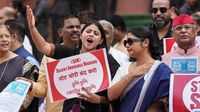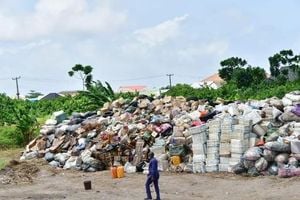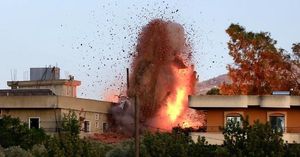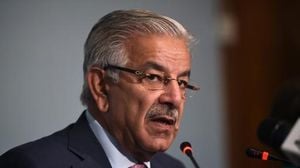When the 15th Haryana assembly gathered for its Monsoon Session from August 22 to 26, 2025, it quietly marked a milestone that few in the state’s political circles celebrated. For the third consecutive session, the Haryana assembly convened without a designated Leader of the Opposition (LoP)—a situation unprecedented in its legislative history, as reported by ThePrint. This absence isn’t just a technicality; it’s the latest and most visible symptom of the Congress party’s ongoing turmoil in Haryana, following its unexpected defeat in the October 2024 polls.
To understand how Haryana’s legislative machinery reached this impasse, it’s worth revisiting the events of the past year. The October 2024 assembly elections were supposed to be a turning point for Congress. Pollsters and political observers predicted a comfortable win for the party, with some forecasts suggesting it could secure up to 60 seats in the 90-member assembly. In the end, the Congress managed only 37 seats, narrowly trailing the BJP’s 48, with a razor-thin vote share difference: 39.09% for Congress and 39.94% for the BJP. The outcome stunned party workers and left the state unit in disarray, as noted by ThePrint.
The 15th Assembly’s first session—a Winter sitting—ran from November 19 to 25, 2024. The Budget Session followed in March 2025, and now, the Monsoon Session arrives with the same institutional vacuum. Despite holding enough seats to claim the LoP post, Congress has failed to put forward a candidate, a delay attributed to internal factional battles and a lack of urgency from the party’s central leadership.
Former chief minister Bhupinder Singh Hooda, who previously served as LoP from 2019 to 2024, was widely expected to reclaim the role. However, he’s faced stiff resistance from within, particularly from leaders like Randeep Surjewala and Kumari Selja, both of whom reportedly enjoy close ties to the party’s central high command. ThePrint notes that this ongoing tussle has left the Congress unable—or unwilling—to resolve its leadership crisis, despite repeated calls from within the party ranks.
One anonymous Congress MLA, speaking to ThePrint, summed up the frustration: "Though the party has been working hard setting up organisation in the state, the central leadership is not showing the same kind of alacrity in the matter." The MLA’s remarks reflect a broader sense of disappointment among state Congress members, who see the delay as both embarrassing and damaging to the party’s credibility.
Bhupinder Singh Hooda’s own position has become awkward. In December 2024, the Haryana government issued a notice asking him to vacate his official bungalow in Chandigarh’s Sector 7. Hooda has yet to comply, reportedly seeking more time. This episode, trivial as it may seem, underscores the uncertainty that has gripped the Congress in Haryana—a party caught between its past glories and a future it can’t quite define.
B.K. Hariprasad, the All India Congress Committee’s incharge for Haryana, acknowledged the delay but offered reassurances. "The process for the election of the LoP is in progress and it will be completed very soon," he told ThePrint. Hariprasad explained that key decision-makers, including Rahul Gandhi and K.C. Venugopal, were occupied with other commitments—Gandhi with his yatra in Bihar, Venugopal with organisational duties. "Once they find time, the LoP issue in Haryana will be resolved very shortly," Hariprasad promised.
While the Congress has launched a sweeping organisational shake-up—announcing 32 new district presidents on June 4, 2025, and making a concerted push to broaden its base beyond its traditional Jat-dominated leadership—the LoP question remains stubbornly unresolved. According to ThePrint, this shake-up is part of Rahul Gandhi’s ‘Sangathan Srijan Abhiyan’ (organisation creation campaign), which aims to foster merit-based appointments and reduce factionalism. The party’s efforts to diversify representation, including more OBC and Dalit leaders, are seen as an attempt to counter the BJP’s own social engineering strategies in the state.
Yet, as the Congress focuses on internal reforms, the absence of a Leader of the Opposition has real-world consequences. The LoP isn’t just a ceremonial post; it’s a central pillar of India’s parliamentary democracy. The LoP participates in business advisory committee meetings, leads opposition business in the house, coordinates with other parties, and—perhaps most importantly—ensures that the ruling party’s decisions receive proper scrutiny.
"The Leader of the Opposition is not merely a ceremonial figure but a key component of our parliamentary system," the Congress MLA explained to ThePrint. "Their absence means the voice of the opposition gets watered down, making parliamentary oversight less effective." The LoP is also consulted on appointments to statutory bodies and commissions. In Haryana, the absence of an LoP meant that when the state government needed to appoint a chief information commissioner and other commissioners in May 2025, it had to write to the Congress party, which then nominated Hooda as its representative.
This institutional gap in Haryana’s assembly isn’t occurring in isolation. The broader national context is one of heightened political tension and legislative disruption. During the August 2025 Monsoon session of the national Parliament, as reported by India Today, the Lok Sabha managed to pass 12 bills and the Rajya Sabha 15, including key pieces of legislation regulating online gaming and sports administration. Yet, the session was marred by repeated protests and adjournments, with productivity slumping to just 31% in the Lok Sabha and 33% in the Rajya Sabha.
Nationally, the session will be remembered for the shock resignation of Vice President Jagdeep Dhankhar on July 21, 2025, officially for health reasons but widely speculated to be linked to disagreements with the government. The session also witnessed fierce debates between Rahul Gandhi and Prime Minister Modi over the operational freedom of the armed forces, and controversy over the Special Intensive Revision (SIR) of electoral rolls in Bihar, which the opposition alleged was an attempt to disenfranchise voters.
Back in Haryana, the Congress’s inability to fill the LoP post has left the assembly without a robust mechanism to hold the government accountable. This vacuum has persisted for almost ten months, undermining the opposition’s institutional role in governance. As the Monsoon Session unfolds, the question remains: Can Congress resolve its internal disputes and restore the checks and balances that are vital to a healthy democracy?
For now, Haryana’s assembly continues to function with a conspicuous absence at the opposition’s helm—a reminder that political wrangling can have real, lasting effects on governance and public trust.




